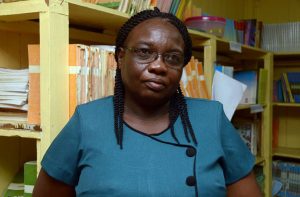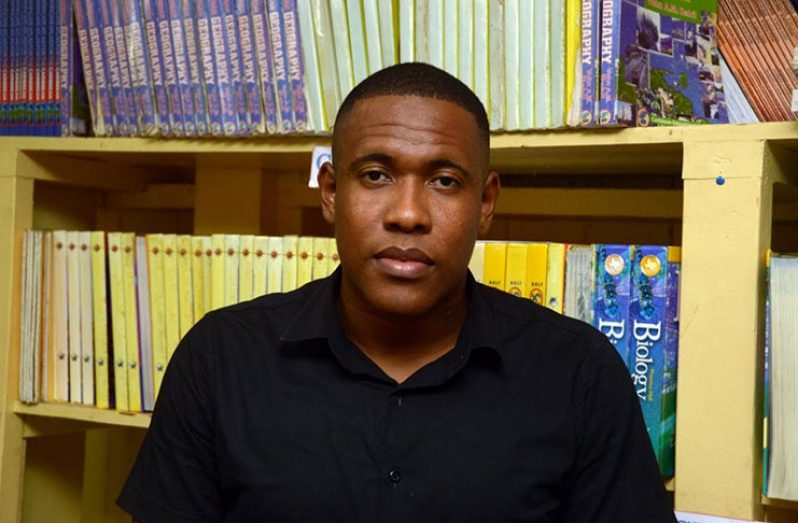By Naomi Marshall
LIFE Reform has tackled four out of the 32 secondary schools registered under the Ministry of Education within Georgetown, through its Secondary School Drug Education and Prevention Programme (SSDEPP).
SSDEPP is a systematic approach towards tackling substance used and misused within all secondary schools across Guyana.
At one of the events conducted at the St. John’s College, Chairman of the Life Reform, Philip Drayton said they will be tackling the Parent-Teacher’s Association first, followed by the schools’ teaching staff, then the student body such as prefects and lastly, they will engage with the entire school.
“First, we are dealing with the PTA body which is the parent’s cohesion with the school because it is very important that such cohesion is adhered to. When we finish there, we are going to tackle the teaching staff only. We are going to give them the tools necessary to actually spot the substance users and misusers within the school, along with other simple tools that they could actually pick up the manipulative behaviour patterns and addictive personalities from the kids within St. Johns. When we finish there, we are going to tackle the student body, dealing with the prefects first because they are much more the police within the schools. They could do random checks, etc., so they will be given specific knowledge to do such and then we are going to tackle the student body with a holistic approach,” Drayton explained.
He indicated that what will be taught to first and second formers will differ from what will be taught to fourth and that too will differ from forms five and six.
“Simply because we have 1st formers that may not know anything about any drug, they don’t need rigorous intervention. They need to be groomed in a particular way, while we contain a selective view in the much higher class. So what would be taught– the attitudes, skills and knowledge– along with the coping mechanisms, will be different from different classes,” he clarified.
He noted that unlike years ago, drugs used today are “designer drugs” that are odourless, therefore, some of the mechanisms that will be taught to teachers will enlighten them on the diverse advancement used to identify whether students have been using drugs.
USEFUL SKILLS

“Because of the simple tools that we will be given, such as the cocaine skills, life skills and refuse skills will be given to the kids but the teachers will also get tools to pick up manipulative patterns, that would not just be within the school classrooms, they can take it home too as well to protect loved ones, friends and families which is very important,” he added.
According to Drayton, Life Reform will be working with all secondary schools over a long period of time– over one month– and will be requesting feedback from the schools. If by chance intervention is needed, there are five levels of interventions that are ready to work along with schools for positive results.
He explained the five interventions
“We gave 0.5, which is awareness; Level One attention, which is considered as outpatient’s services. This deals with support groups, alcohol anonymous, cocaine anonymous. Then there is Level Two which is intensive out-patient’s services. Level Three is definitely a residential service which is much more of the half-way house aspects where persons would be confined to an area. They will still have access to society so they can become responsible members, but it is under a structured timeframe and then there is Level Four, where it is called intensive outpatient residential services, which we would consider as the rehab or level four treatment attention.”
Life Reform is a non-governmental organisation formed with the understanding of the concern that illegal drug use is undercutting traditional values and threatening the existence of stable families, communities and government institutions throughout Guyana.
VULNERABLE GROUP
According to Drayton, data from research and studies in Guyana shows that young people are the most vulnerable group and the first use of drug in the region has been recorded in the 10-14yrs age group. It has also been found that the most widely used and misused substances in schools are ecstasy, marijuana, alcohol, lean, tobacco and cocaine.
Life Reform believes that an effective prevention intervention lies in helping young people to adjust “their behaviours, influence their preconceptions and misconceptions and develop their capacities to make informed healthy decisions, all whilst recognising the multiple influences such as social norms, interaction with peers, living conditions and their own personality traits”.
St. Joseph High, North Georgetown Secondary, St. John’s College and Brickdam Secondary School are still in the process of undergoing the programme.
At the event conducted at the St. John College, teacher of that school, Carla Wills, indicated that she has not seen much signs of drug use at the school; however, it is her view that students who do use drugs are mostly exposed to it at home.
She said throughout her 32 years of teaching, her assumptions are most times confirmed by parents or someone who may know the suspected students.
The educator is advising parents to “stop burying their heads in the sand, because at most instances when we call in parents, they behave as though ‘it’s not my child’, and they generally don’t want to accept that the child is involved in certain things. I think first we must have parents accepting responsibility for some of the problems that we would encounter in the schools and I think that is going to help a long way”.




.png)









